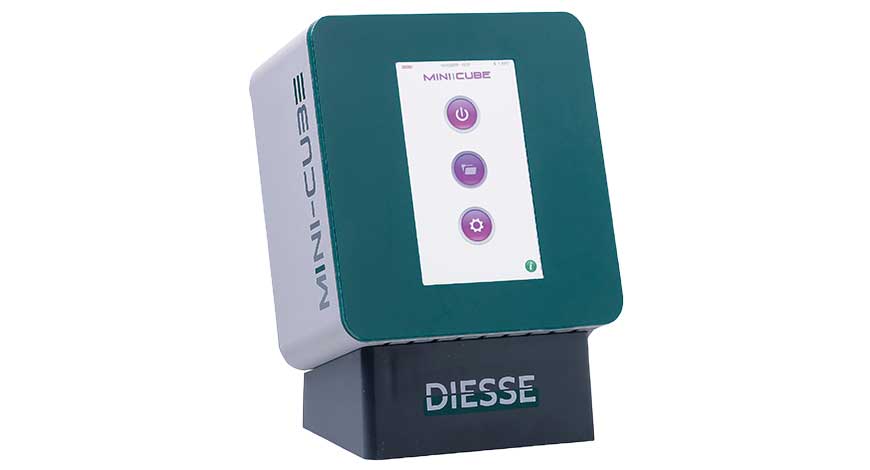Product Watch
MINI-CUBE

Transasia has an array of affordable ESR analyzers that cater to laboratories with wide range of workload. The latest launch, MINI-CUBE, is the perfect solution for laboratories with low ESR test/workload.
MINI-CUBE is a compact, automated, reliable, safe, economical, and faster method for quantitative erythrocyte sedimentation rate (ESR) determination. The ESR is a popular laboratory test that serves as a sickness index, in conjunction with the patient’s clinical history and physical examination findings. ESR is an inexpensive and simple test for evaluating the inflammatory response, infection, trauma, or malignant disease. It also serves as a prognostic factor in non-inflammatory conditions, such as coronary heart disease, stroke, heart failure, and prostate cancer.
No dedicated citrate tube needed. With MINI-CUBE, the ESR test is performed on blood samples collected in primary EDTA vacutainers used for complete blood count, thus eliminating the use of dedicated citrate tubes. Further, ESR testing can be performed using very small volume of blood (500 µL), with automatic detection of pediatric samples.
User-friendly. Due to the continuous loading of samples, the MINI-CUBE produces results in 20 minutes. These are in good correlation with the gold standard International Council for Standardization in Hematology (ICSH)-approved Westergren method. It also meets Clinical Laboratory Standards Institute (CLSI) guidelines.
The MINI-CUBE offers random-access sample loading, barcode scanning, a bluetooth printer, automatic archive of QC and patient data, and LIS compatibility. The quality control feature eliminates the need to manually record daily runs, and statistical reports are generated with the following features: Levey Jennings charts, standard deviation, CV percent, mean, and highest and lowest result. It consists of an inbuilt printer; there is also a provision for detection of pediatric samples and correction of the ESR value for samples with low hematocrit.
Calculation of the disease activity score 28 (DAS 28). Besides measuring ESR, the MINI-CUBE can also calculate the DAS28. This feature makes the MINI-CUBE even more functional for small laboratories in rheumatoid arthritis testing. The two parameters, which are assessed at the same time, can be extremely useful for evaluating the progress of the disease and monitoring treatment.
The response to treatment is defined, based on the activity of the disease identified, and DAS score is classified as low, moderate, or high disease activity.
- High disease activity >5.1
- Moderate disease activity ≥3.2 to ≤5.1
- Low disease activity ≥2.6 to ≤3.2
- Remission <2.6
Environment-friendly. The instrument is environment-friendly, as there is no consumption of blood or reagent. Further, it does not produce any waste, thus ensuring complete safety for the operator and economic savings in the disposal of hospital waste.
Automation in ESR – The need of the hour. Even today, labs in Tier-II and Tier-III cities are processing ESR by manual method. The manual method is long drawn (1 hour test time), messy, and marred with bio-hazard risks. This is besides manual documentation and use of dedicated citrate tubes. Further, the test result is impacted with temperature fluctuation and tube placement. Also, there is no provision for HCT correction, sample identification, and result traceability.
At a time when demand for effective and efficient medical solutions is on the rise, ESR automation is poised to play an increasingly significant role in the healthcare industry by ensuring accurate and precise results and eliminating manual interventions. Automation guarantees safety to operators and optimizes the workflow to channelize the use of human resources.












